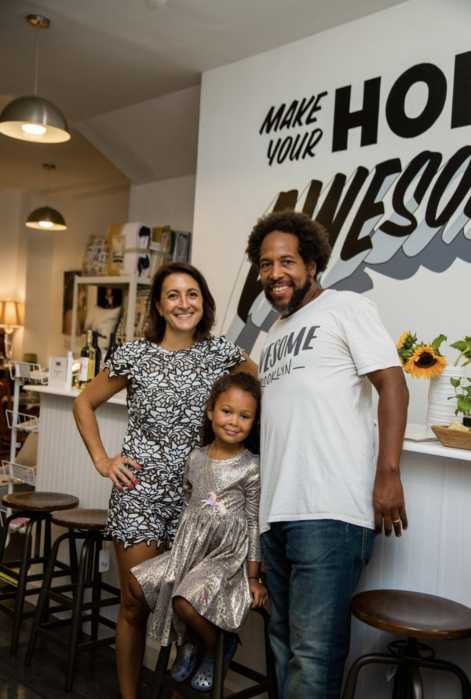Martin Duberman.
BY DOUG IRELAND | Queers of all colors, styles, and status owe an enormous debt to Martin Duberman. Anyone who doubts that would likely learn otherwise from “The Martin Duberman Reader: The Essential Historical, Biographical, and Autobiographical Writings,” just published last week by The New Press.
Marty, as he is known to legions of same-sexers and gender rebels, has been our radical conscience throughout the 44 years of the modern gay movement. He was the very first — and for too long the only — major American intellectual to unashamedly embrace gay liberation from its earliest days.
New collection of Martin Duberman’s essential writings chronicles a lifetime of liberationist thinking and coalitionist commitment
As the author of more than 20 books — see accompanying sidebar — and an endless stream of insightful essays and articles, Marty has long been the perfect example of a public intellectual engagé. He somehow found the time to match his intellectual and historical explorations and trenchant analyses with a tireless and militant activism that helped launch a skein of organizations — from the National Gay and Lesbian Task Force and the Lambda Legal Defense and Education Fund to the Gay Academic Union and Queers for Economic Justice — that inspired several generations of committed movement soldiers.
“The Martin Duberman Reader” reminds us of the sweep and scope of this courageous activist-scholar’s life that have made him one of our wisest men — and greatest heroes.
THE NEW PRESS
Marty is known as the “Father of Gay Studies” because of his decade-long struggle to establish the Center for Lesbian and Gay Studies at CUNY, the first such program at any American university; and one of the chapters in “The Martin Duberman Reader” — an excerpt from one of his three volumes of memoirs — recounts the enormous homophobic resistance he encountered in the supposedly enlightened world of academia as he fought to do so at Yale. His 1989 essay collection “Hidden from History: Reclaiming the Gay and Lesbian Past” is not only a seminal reference work but also helped define the nature of gay history.
“There really is a gay subculture, a way of looking at life and coping with its joys and sorrows that has much to offer the straight world — if it would bother to listen — and also to offer the multitude of gay people who prefer to claim that we’re just like everybody else,” Marty insists. “We’re not, and to insist that we are contributes to the destruction of a special set of values and perspectives that could do much to provide needed shifts in mainstream patterns. Gay people are entitled to all the rights straight people enjoy, but aren’t carbon copies of straight people.”
As a precocious historian, Marty first made his name by his pioneering work on the anti-slavery movement in the pre-Civil War days — which brought him the Bancroft Prize, the most prestigious award for American history (he’s also been given a Lifetime Achievement Award by the American Historical Association.) He’s always been involved with the question of race in America, and the “Reader” includes chapters on “The Northern Response to Slavery” and on “Black Power and the American Radical Tradition,” as well as an excerpt from his brilliant, monumental biography of Paul Robeson.
In a chapter entitled “On the Death of Ronald Reagan,” Marty emphasizes, “Historical truth matters. As a nation we care little for it, much preferring simplistic distortions that sustain our national myths about ‘freedom,’ ‘opportunity,’ and ‘democracy.’ You can’t grow into adulthood when you’re fed pablum all your life. And that’s why we remain a nation of adolescents, with a culture concerned far more with celebrityhood than with suffering.”
While the “Reader” also includes excerpts from his biographies of queer arts impresario and writer Lincoln Kirstein (detailing his role in helping George Balanchine establish his ballet company) and of radical historian Howard Zinn, and essays on Cuba, Kinsey, Masters and Johnson, and life in the theater (Marty is also a distinguished playwright), the greater part of this book will be of direct interest to readers of this newspaper, illuminating a broad swath of gay politics, culture, and history.
There is Marty’s eye-opening biographical exposé of “Donald Webster Cory, Father of the Homophile Movement,” and how this strange figure became — under his real name of Edward Sagarin — a vocal opponent of gay liberation.
In a “Reader” excerpt from Marty’s 1993 book “Stonewall” — the best history of the rebellion that launched the gay liberation movement — we learn, “Some of the Mob members who worked gay clubs were themselves gay — and terrified of being found out. ‘Big Bobby,’ who was on the door at Tony Pastor’s, a Mafia-run place on Third Street… almost blew his cover when he became indiscreet about his passion for a Chinese drag queen named Tony Lee (who, though going lamentably to fat, was famed for her ballerina act). The Stonewall Inn seems to have had more than the usual number of gay mobsters. ‘Petey,’ who hung out at Stonewall as a kind of freelance, had a thick, Italian street accent, acted ‘dumb,’ and favored black shirts and ties; he was the very picture of a Mafia mobster — except for his habit of falling for patrons and coworkers.”
In the chapter on “Racism in the Gay Male World,” Marty writes, “No movement born to protest inequality can hope to accomplish contradictory purposes. In its current guise, the gay movement may well succeed in gaining broader access to the preexisting clubhouses of power, but it can’t pretend that it’s centrally devoted to a struggle for improving the lot of the many. The gay movement can’t opt for approval and simultaneously pretend not to have jettisoned its earlier determination to address the plight of all gay people: the invisibility of lesbians, the discrimination against nonwhites and gender nonconformists, the scornful disregard of the rural poor. Of the national gay organizations, none focuses its current efforts on behalf of those nonaffluent, nonprivileged gays who constitute our actual majority, who everywhere dot the land, doings its dirty work, unacknowledged and unorganized, self-esteem disfigured, future hopes dim. Who among the leaders of our burgeoning gay officialdom speaks to those needs, acknowledges their existence? “
The “Reader” includes chapters on “Feminism, Homosexuality, and Androgyny,” on “Feminism and the Gay Academic Union,” and on “Pleasuring the Body: Reflections on Gay Male Culture.” On almost every page of this wide-ranging “Reader,” one can find lessons and analysis and injunctions that are relevant to our thought and conduct today and challenge us all to be better and more complete human beings.
The “Reader” closes with a “CODA: Acceptance at What Price? The Gay Movement Reconsidered,” a must-read. Based on a speech Marty gave last December, it is a ringing declaration of his radical gay politics and worth quoting at length:
“Those in this country who self-identify as left-wing, as I do, have never been able to solve the conundrum of how to prevent a radical impulse from degenerating into reformist tinkering — which comes down to how to mobilize a large constituency for substantive change when most of its members (think the Human Rights Campaign here) prefer to focus on winning certain kinds of limited concessions (like, for gay people, the right to marry or to serve in the military) and show little interest in joining with other dispossessed groups to press for a broader social reconstruction…
“Gay radicals insist that our special historical experience has provided us, just as it has for black people, with special perspectives and insights into mainstream American culture — insights we feel should be affirmed, not denied…
“‘Gay ‘differentness’ isn’t some second-rate variation on first-rate mainstream norms, but rather a decided advance over them. Gay subcultural values could richly inform conventional life and could open up an unexplored range of human possibilities for everyone. Could, that is, if the mainstream were listening, which it isn’t. And the reason it isn’t is due in part to us — to our denial or concealment of our own specialness in the name of being let into what is essentially a middle-class white male clubhouse.
“I think it’s a disgrace that our country as a whole is far more entranced with improving the technology of drone strikes, those anonymous killers in the sky, than with the plight of the poor. And I’m afraid I have to add that I also consider it a disgrace that our assimilationist-minded national gay movement does a far better job at representing the white middle- and upper-class elements in our community than it does representing those of our own people who suffer from a variety of deprivations — to say nothing of the nongay multitude who are also afflicted… We are in danger of becoming part of the problem. My hope is that we may yet become part of the solution.”
To all of which I can only add a loud “Amen!”
I have been reading and learning from Marty Duberman nearly all my sentient life, long before we became friends, and I hope to continue doing so for years to come. I’m happy to report that Marty, now 82, is still going strong — he’s currently putting the finishing touches on a dual biography of gay and AIDS activists Michael Callen and Essex Hemphill.
Hopefully, “The Martin Duberman Reader” will introduce a new generation to this inspiring man and encourage many to explore the rest of his prolific output. Cent’anni, Marty!
THE MARTIN DUBERMAN READER: The Essential Historical, Biographical, and Autobiographical Writings | By Martin Duberman | The New Press | $21.95 | 374 pages
SELECT PUBLISHED WORKS BY MARTIN DUBERMAN
“Charles Frances Adams, 1807–1886,” Houghton, 1961
“In White America” (play), 1963
“The Antislavery Vanguard: New Essays on the Abolitionists” (editor), Princeton University Press, 1965
“James Russell Lowell,” Houghton, 1966
“Black Mountain: An Exploration in Community,” Dutton, 1972
“Male Armor: Selected Plays, 1968–1974,” Dutton, 1975
“Visions of Kerouac: A Play,” Little, Brown and Company, 1977
“About Time: Exploring the Gay Past,” Gay Presses of New York, 1986
“Paul Robeson,” Knopf, 1988
“Hidden From History: Reclaiming the Gay and Lesbian Past” (co-editor with George Chauncey and Martha Vicinus), NAL, 1989
“Cures: A Gay Man's Odyssey,” Dutton, 1991
“Stonewall,” Dutton, 1993
“Midlife Queer: Autobiography of a Decade, 1971–1981,” Scribner, 1996
“Left Out: The Politics of Exclusion: Essays, 1964–2002,” Basic Books, 2002
“Haymarket” (novel), Seven Stories Press, 2004
“The Avenging Angel” (a reconsideration of John Brown), The Nation, May 23, 2005
“The Worlds of Lincoln Kirstein,” Knopf, 2007
“Radical Acts: Collected Political Plays,” The New Press, 2008
“Waiting to Land: A (Mostly) Political Memoir, 1985-2008,” The New Press, 2009
“A Saving Remnant: The Radical Lives of Barbara Deming and David McReynolds,” The New Press, 2011



















